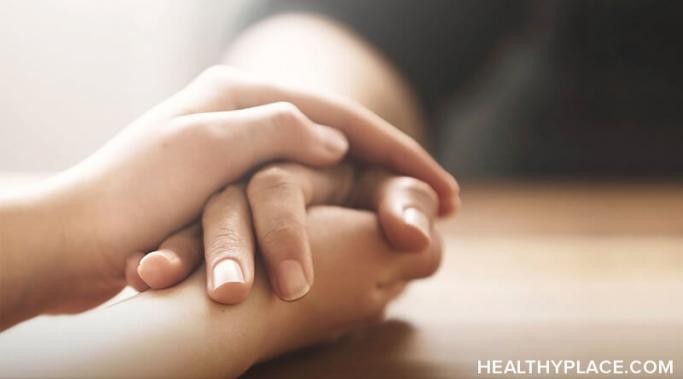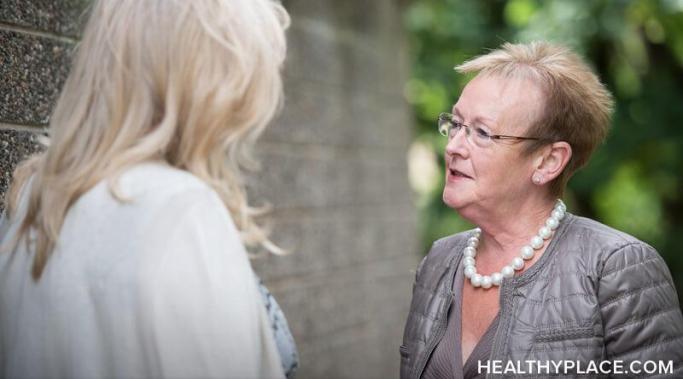Blogs
Struggling with anxiety means often experiencing symptoms unexpectedly, so compartmentalizing anxiety can help. Life does not stop when you experience anxiety. The day goes on, you still have to go to work, go to school, tend to your family, and all of this does not stop when you feel anxious. However, there are coping strategies you can use to help you manage chronic anxiety on a daily basis when you know that life goes on and it is important to focus on the present. During times that this has occurred for me, I have found that it has been helpful for me to compartmentalize my anxious thoughts and feelings.
Juliana Sabatello
When we aren't at our best emotionally, it can help on a nervous system level to just have someone be with us to co-regulate our emotions. I was definitely one of those children who needed a hug when I was upset. I have always responded strongly to the negative and positive emotions of others. I also respond very well to a calm person comforting me when I am anxious or stressed. I work mostly with children, so I am used to hearing the term "co-regulation" as it relates to parents and caregivers helping children calm down when they are upset, but it can be just as powerful for adults in relationships.
When you're going through postpartum depression, it can feel like you're lost. It's as if you're seeking mental health through an endless maze of treatment, setbacks, and obstacles. Knowing how to treat your postpartum depression is a big step. When it comes to treatment, I firmly believe in using everything at your disposal. I am all for talk therapy and medication. In fact, I used both of those avenues in my treatment. However, that doesn't mean those are the only two ways you can treat postpartum depression. I found that there were several natural methods that helped me feel better and have more good days.
Suicide is a very real and prevalent issue for individuals of any age, ethnicity, sexual orientation, or socioeconomic status. It can be more widespread in some locations or groups, but anyone can fall victim to suicidal thoughts, including individuals who suffer from verbal abuse.
Picture this: you are at a social event and having a reasonably good time. Then, someone you don't know walks up to you, and after some small talk, asks you, "So what do you do for a living?" If you like your job or don't care much about it, this question can be mildly irritating. But since you are used to it, you answer and move on to another topic. However, no matter how common this question is, nothing changes the fact that it is inappropriate to ask people what they do. Let's see why.
Around this time last year, I was in serious need of a social media detox because doom-scrolling on Facebook and Instagram had monopolized most of my free time and sabotaged my mental health. This habit morphed me into someone who was constantly anxious, irritable, tense, and frantic. I could not seem to redirect my thoughts from the vitriol that spewed in the comment sections on my newsfeed, so to regain some measure of control, I turned to a familiar distraction: my eating disorder.
Setting boundaries is one of the most important and meaningful mental health practices. When you establish boundaries, you can thrive without burning out. You'll draw a safe space where you can become the best version of yourself. And when you're the best version of yourself, you can give more to those around you. So, even though they're your personal boundaries, they benefit others, too.
In my job as a pediatric occupational therapist, I spend a lot of time focusing on parent education. I find that building a parental understanding of a child's condition is the single most important factor in improving that child's quality of life. I'm beginning to learn that the same is true in mental illness – the level of understanding and compassion that family (or other relevant supporters) have for a person's mental illness has a huge bearing on their experience.
I'll start off by saying that I don't believe suicide is a selfish act. This opinion comes from living with suicidal ideation since before I even knew there was a term for it. For the sake of this blog post, however, I want to explore the opposite. Is suicide selfish? So what if it is? (Note: This post contains a content warning.)
While common responsibilities include working, raising families, going to school, and doing household chores, practicing self-care is just as important. Yet, we often do not make it part of our priorities. One reason is that we are busy thinking about other things and helping other people. However, we need self-care to function well in life. To learn more about self-care and two analogies that represent its importance, continue reading this post.










I read this book many years ago, just as I was entering the turmoil of remembering, questioning and doubting myself all the way (as I'd been covertly taught over a lifetime). I happened to mention to my two sisters one day, "This is so strange but I've been diagnosed with PTSD." Both my sisters surprised me by responding, "Me too."
THEN I happened upon an old book manuscript that my now deceased father had written (not published), wherein the protagonist was obviously based upon himself and he rapes his "fiancee," who had my unusual name. Yes, truly.
Then I made myself look at the peculiar memory I always had where he violently threatened me but somehow I had never been able to recall what came before or after the episode. I had to admit that was a bit strange.
The pressures and powers to forget sexual abuse are great, both in family and society. In fact, I've come to the sad conclusion that the vast majority of survivors never really deal with their childhood wounds (a neglect for which there are always repercussions).
To critique an encouragement of people trusting their intuition in such matters is really getting the prescription dangerously wrong.
Thanks!